Publications
Articles, publications, books, tools and multimedia features from the U.S. Institute of Peace provide the latest news, analysis, research findings, practitioner guides and reports, all related to the conflict zones and issues that are at the center of the Institute’s work to prevent and reduce violent conflict.

Thomas Hill on Libya
Since the fall of Muammar Qaddafi in 2011, successive U.S. administrations have watched Libya’s continuing collapse, mistakenly believing that the country’s unraveling threatens only Europe, says Thomas Hill. Ahead of the Palermo conference, which aims to find a solution to the crisis in Libya, Hill says that United States’ should play a more direct role in stabilizing the country.
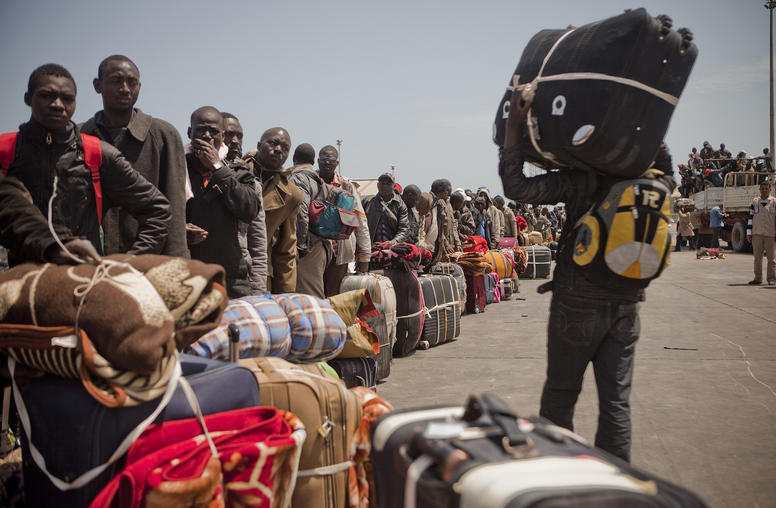
Libya’s Migrant Crisis Isn’t Just a European Problem
Next week, Italy will host an international conference intended to finally bring Libya’s bloody seven-year conflict toward resolution. Since the ouster of Muammar Qaddafi in 2011, successive U.S. administrations have watched Libya’s continuing collapse, believing that the country’s unraveling threatens only Europe. This is a mistake.

Nigeria’s Worst Violence Is Not Boko Haram
As Nigeria works to stabilize from years of warfare in its north, the deadliest threat is not the Boko Haram extremist movement, but escalating battles between farming and herding communities over scarce land and water. Bloodshed has increased since January, as armed groups have attacked and...
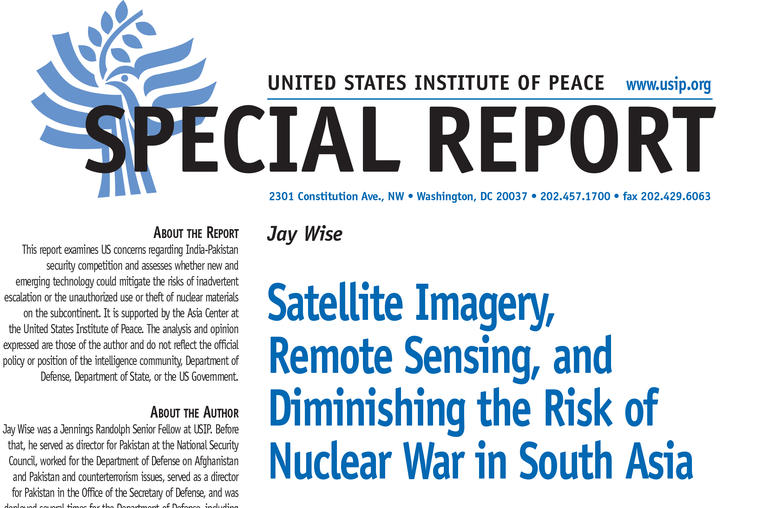
Satellite Imagery, Remote Sensing, and Diminishing the Risk of Nuclear War in South Asia
This report examines U.S. concerns regarding India-Pakistan security competition and assesses whether new and emerging technology could mitigate the risks of inadvertent escalation or the unauthorized use or theft of nuclear materials on the subcontinent.

Charles North on Russia in Ukraine
“In its fifth year, Russia's armed aggression in Ukraine's Donbas region has become a costly burden with little strategic benefit,” says Charles North. One possible exit ramp has emerged from recent negotiations: a U.N.-mandated peacekeeping operation to facilitate a peace process resulting in Russia’s departure from Donbas and the return of control to Ukraine.
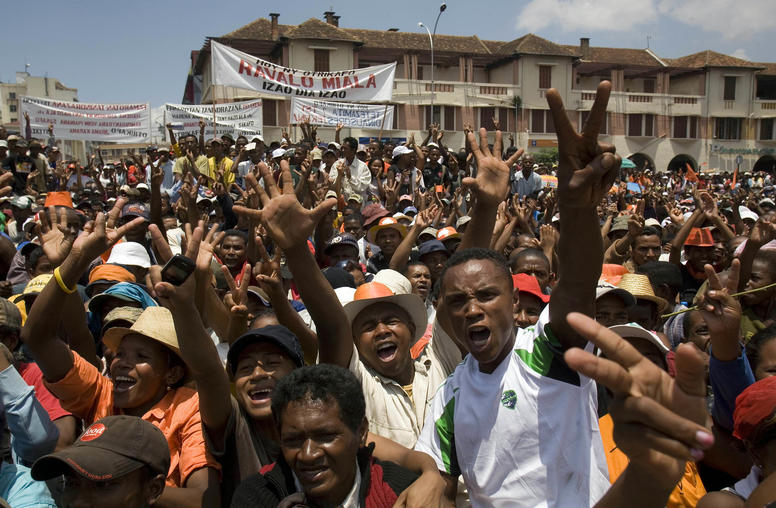
In Madagascar, a Presidential Vote Sees Old Fissures Resurface
On November 7, the Indian Ocean island nation of Madagascar, a country larger in area than California and more populous than Florida, goes to the polls to elect its next president. With a history of political crisis and fraught elections, the 2018 polls have seen renewed acrimony as no less than four former presidents of Madagascar seek the country’s highest office. USIP’s Aly Verjee and Jonas Claes discuss what’s at stake, the challenges ahead and how election disputes and violence can be mitigated.
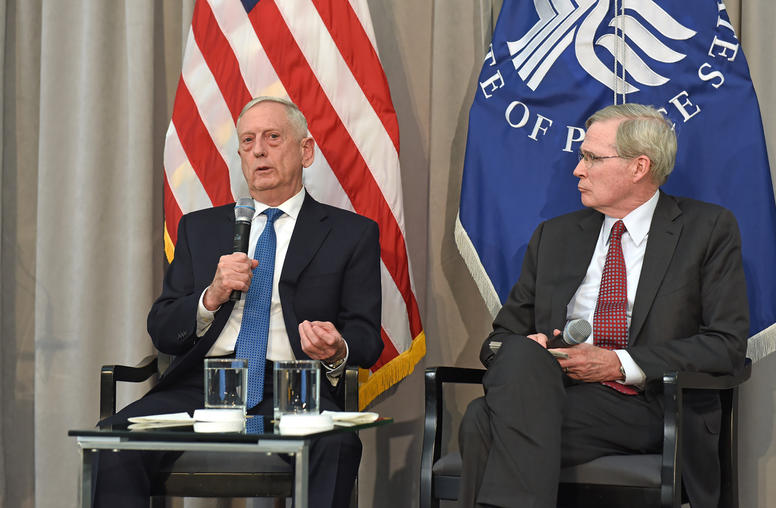
James Mattis: Yemen Needs a Truce Within 30 Days
Secretary of Defense James Mattis yesterday urged combatants in Yemen, including Saudi Arabia and Yemen’s Iran-backed Houthi faction, to negotiate a cease-fire in that war within 30 days while speaking to diplomats, military officers and conflict-resolution specialists at the U.S. Institute of Peace. In a webcast conversation moderated by former national security advisor and USIP Chair Stephen J. Hadley, Mattis also discussed global security challenges facing the United States—from Russia and China, to North Korea—cybersecurity and the need for the developed world to help fragile states improve their governance and address the root causes of extremism.
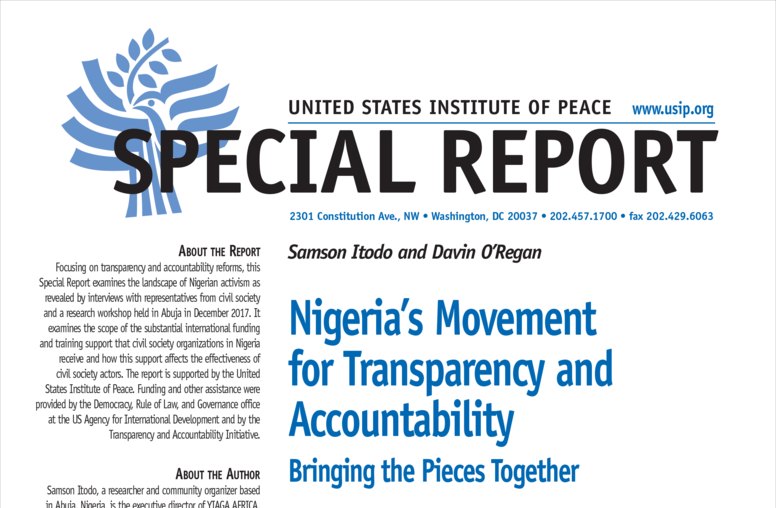
Nigeria’s Movement for Transparency and Accountability
Since the demise of its military dictatorship in the late 1990s, Nigeria has made remarkable democratic progress. Still, widespread corruption bedevils the country—which in many respects presents its biggest policy challenge and its biggest threat to stability and development. Drawing on a workshop held in Abuja as well as on...
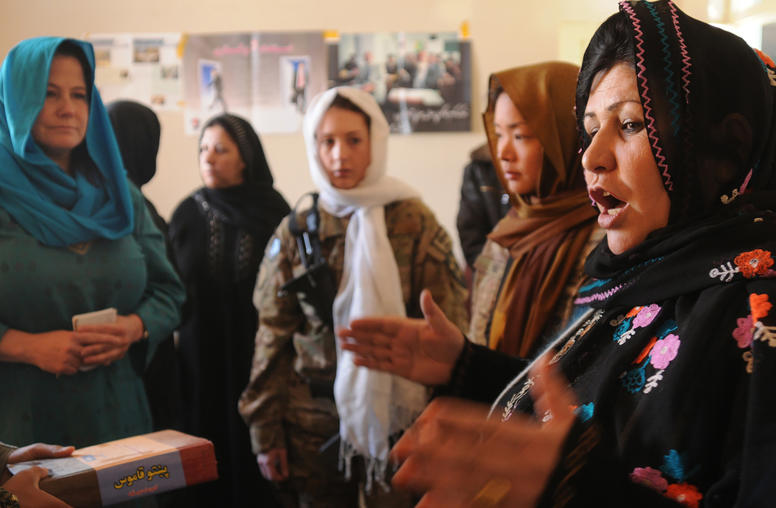
For the Afghan Peace Process to Work, Women Must be Involved
The bottom line is Afghan women want peace and they want to have a say in how it is negotiated. Without women at the negotiation table, a long-term and inclusive peace is dramatically less likely. Indeed, studies show that the inclusion of women in peace negotiations, leads to peace agreements that are representative of the needs of the people they affect and, therefore, more sustainable.
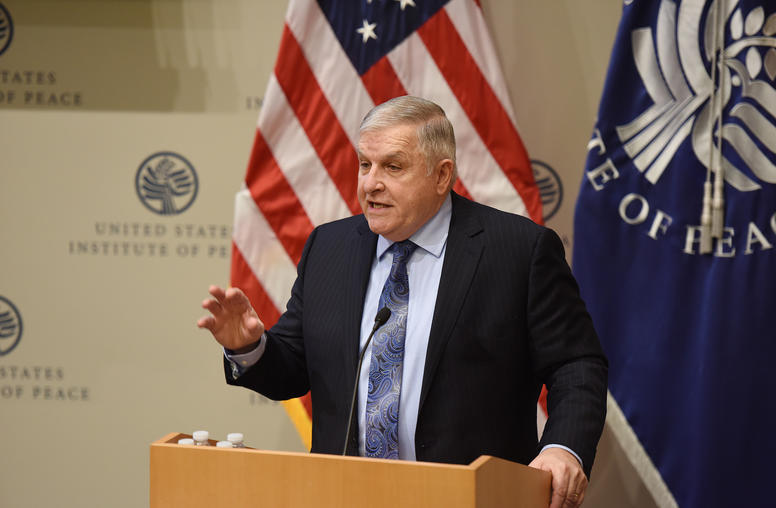
To Better Halt Wars, Does America Need a ‘Crisis Command’?
A string of violent crises since the 1990s—from Somalia to Iraq to others—has underscored America’s need to coordinate better among military forces, relief and development organizations, diplomats and other responders, retired Marine Corps General Anthony Zinni said this week. The United States should consider creating a standing “interagency command” for such crises, Zinni told listeners at USIP.